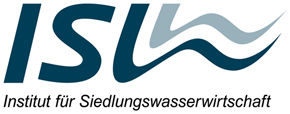
Kai Klinksieg
Characterization of the Settling Behaviour of Municipal Sludges Using Rheological Measurements
Abstract
In the past, rheological parameters of sewage sludge were usually not taken into consideration for the characterization of sludge properties. No thorough investigation of the correlation between rheological parameters and the settling behaviour of sewage sludges has been conducted so far, although already Stokes' law implicitly considers viscosity an elementary parameter for the description of settling behaviour.
Therefore, the objective of this research work was to investigate the correlation between rheological characteristics and the settling behaviour of municipal sludges. The thesis starts with the description of sludge characteristics and basic concepts of rheology. Then the predominantly used measuring system (a coaxial cylinder system Z34 DIN) and the corresponding measuring program based on the work of Moshage are introduced. Moshage described a correlation between the full-scale dewatering results and shear stress at a shear rate of 500 s-1, while Stokes' law implies that viscosity is an elementary parameter for describing the settling behaviour. If, in addition to these two aspects, sludge dewatering is understood as an extensive settling or thickening process, then a correlation between the rheological characteristics and the settling behaviour must exist.
During the research work, the development of the height of the sludge interface over time was recorded in standardized settling tests and was then compared to measured rheological characteristics. Then an existing exponential model developed by Keudel, which describes settling processes in sequencing batch reactor (SBR) systems, was adapted sufficiently to be able to predict the settling curve of a sewage sludge with a defined TS content. Viscosity measurements and function parameters determined beforehand by regression analysis were used for the prediction. SBR dimensioning can be optimised with these predictions.
The adapted exponential model is based on test series with sludge samples with solids contents of 2,5 g/kg and 5 g/kg and a reference sludge volume (RSV) below 600 mL/L. Experiments with sludge samples with a total solids content of 5 g/kg required a flocculation period (dependent on RSV) in the beginning of the settling process. In addition, the experiments confirmed the influence of the surface charge of EPS on sludge dewaterability and proved that optimum polymer dosages can be determined exactly by measuring the viscosity of the sludge liquor using a rheometer or a capillary viscosimeter.
Finally, shear stress at a municipal wastewater treatment plant was calculated as an example in order to illustrate the magnitude of shear stress which occurs at wastewater treatment plants and to define its influence on the settling processes. Extremely high shear stress of up to 12,000 s-1 was determined for the transportation processes between the various steps of wastewater treatment and sludge treatment. Although retention time in the various transportation devices is short in comparison to the entire treatment time, it is of high importance for rheological considerations. Due to thixotrophy of sewage sludge, after a maximum shear stress of 12,000 s-1 a rest period of several hours is necessary to re-establish an equilibrium state. In order to evaluate real viscosities in the various process steps, it is necessary to observe not only the destruction of the sludge structure during shear stress but also the reconstruction of the sludge structure during the rest phase.
In conclusion it can be stated that this research work shows that rheological characteristics of sewage sludge are much more significant than assumed in the beginning. As a future prospect, full-scale application options must be examined systematically, in order to be able to take advantage of above described correlations for the dimensioning of treatment processes.
Vacancies of TU Braunschweig
Career Service' Job Exchange
Merchandising
Term Dates
Courses
Degree Programmes
Information for Freshman
TUCard
Technische Universität Braunschweig
Universitätsplatz 2
38106 Braunschweig
P. O. Box: 38092 Braunschweig
GERMANY
Phone: +49 (0) 531 391-0
